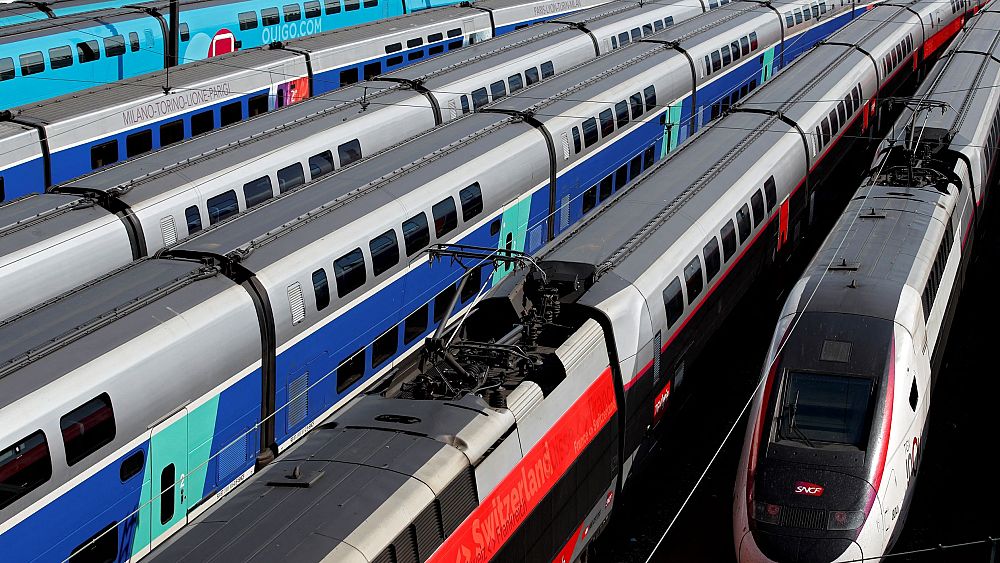
Faster trains, simpler tickets and support for international trips could be on the agenda for Europe’s rail network, under new European Commission proposals revealed on Tuesday.
The planned Trans-European Transport Network (TEN-T) would see new high speed rail connections built by 2040, slashing journey times on trips including Budapest to Bucharest, Vigo to Porto and Hamburg to Copenhagen.
Core routes on the TEN-T network would have a minimum speed of 160 km/h for passenger trains and 100 km/h for freight, the Commission’s action plan for boosting long-distance rail said.
The European Commission also promised “decisive action” to simplify the process of booking cross-border train travel, in order to make tickets “easier to find and book, and more attractive in price,” it said.
“Today’s proposals set European mobility on track for a sustainable future: faster European rail connections with easy-to-find tickets and improved passenger rights, support for cities to increase and improve public transport and infrastructure for walking and cycling, and making the best possible use of solutions for smart and efficient driving,” Frans Timmermans, Commission vice-president for the European Green Deal, said.
Changing track
In its announcement of the TEN-T network plans, the Commission acknowledged that progress on boosting rail’s share of passenger journeys in Europe has been slow to date.
While the number of passenger kilometres travelled on Europe’s railways rose from 339.9 billion in 2001 to 407.2 billion in 2018, rail’s overall share of journeys has barely moved, increasing from 6.7 per cent to 6.9 per cent.
In the same period, air travel’s share rose from 6.1 per cent to 9.6 per cent of all European journeys by passenger kilometres.
The share of train journeys, which are 81 per cent electric-powered in the EU, must increase if the world is to meet its climate targets, the Commission said.
“Rail is part of the solution, being responsible for less than 0.4 per cent of transport-related greenhouse gas emissions in the EU,” the proposals said.
What would change for passengers?
If put into practice, the European Commission’s “Action plan to boost long distance and cross-border passenger rail” would bring noticeable changes for both passengers and train companies alike.
For passengers, tickets could become cheaper, with the European Commission promising to look into exempting them from sales taxes.
This would build on the example of EU member state Germany, which already lowered the VAT on long-distance rail tickets from 19 to 7 per cent last year, the Commission said.
The proposals would also tackle the complicated business of booking train travel across borders, aiming to change the current process that can force passengers to book separate tickets with each train operator on their journey.
Those split tickets can cause another problem highlighted in the Commission’s plans: what happens when someone misses a connecting train?
“It is essential that passengers combining several trains into one journey are sure that they will not be stranded if one of the trains is late, regardless of whether the tickets were sold as a through-ticket or as separate contracts,” the action plan said.
And for train companies?
When it comes to making international train travel a smooth process, simplifying the passenger experience is only half the battle.
As trains cross over into a neighbouring country’s rail network, their operators pay an access fee to cover the use of the track. Currently, EU law allows infrastructure companies to charge a premium on those access fees, but this could be about to change.
In 2023, the Commission will update its guidelines on how high track access fees can be. It will also promote pilot projects to find out whether cutting those fees could boost cross-border train travel.
Temporary regulations allowing EU countries to reduce or even remove track access fees, brought in as a result of the COVID-19 pandemic, could also be extended to “improve current charging practices,” the Commission said.